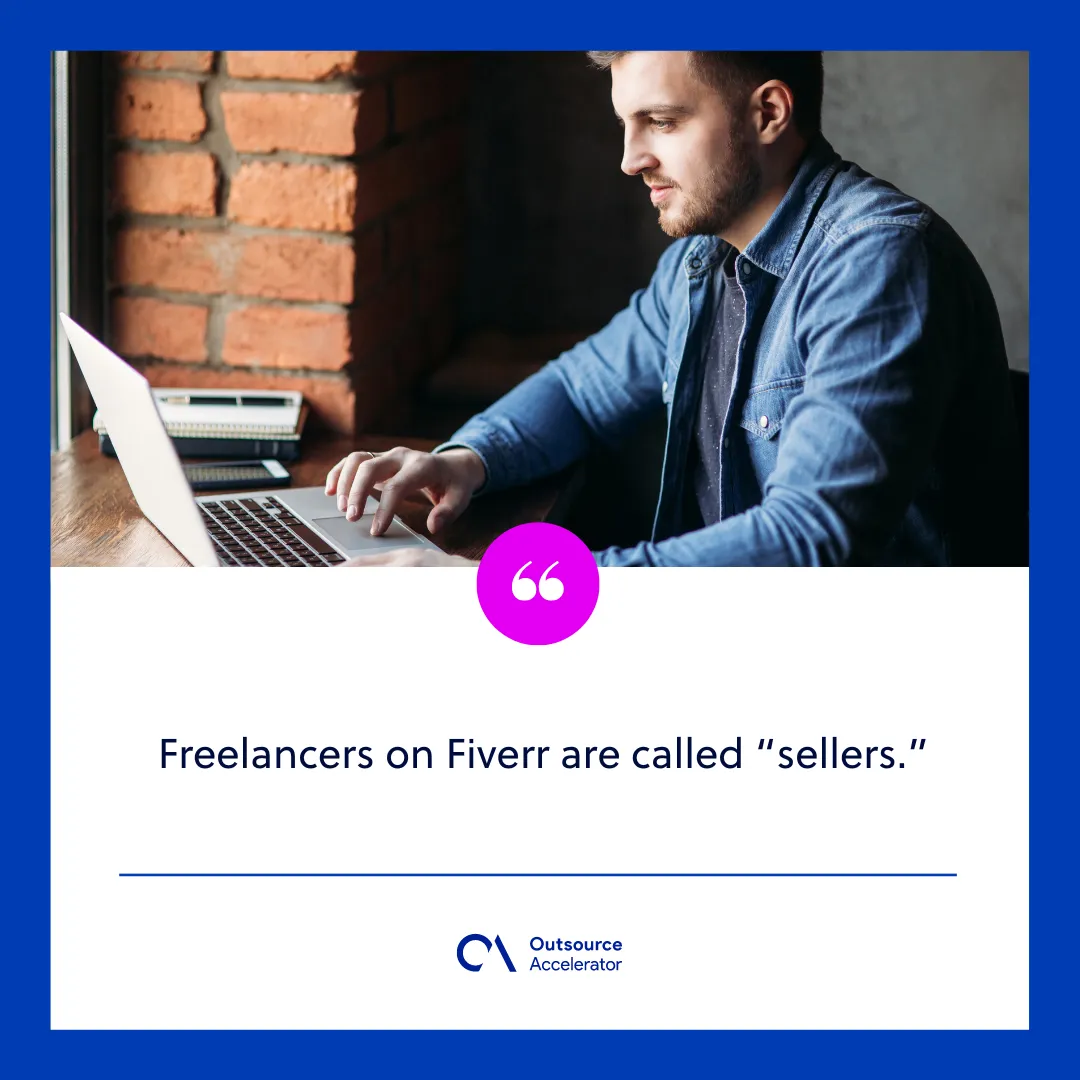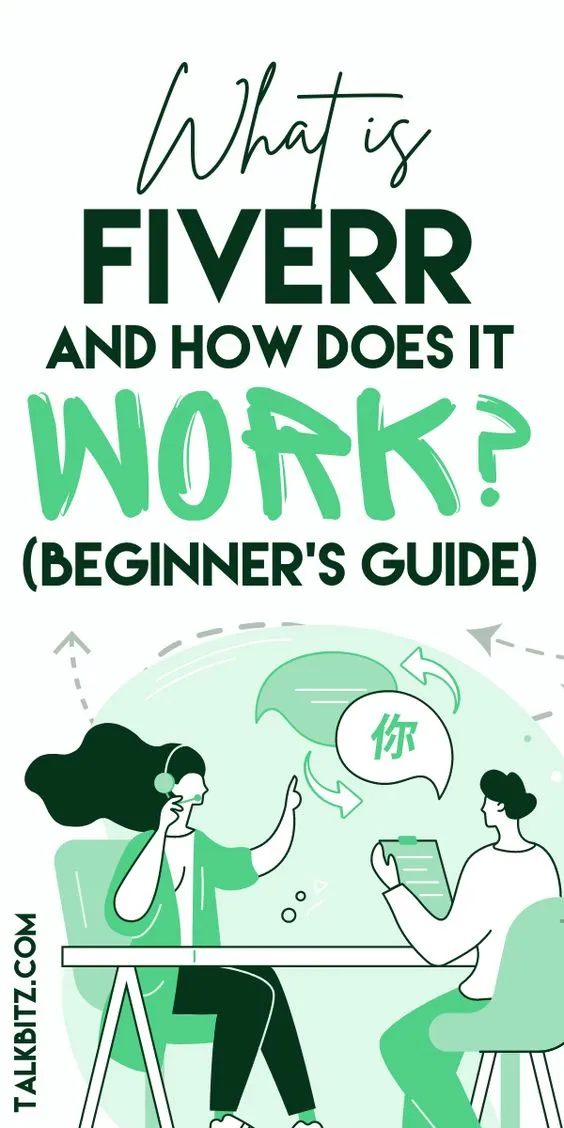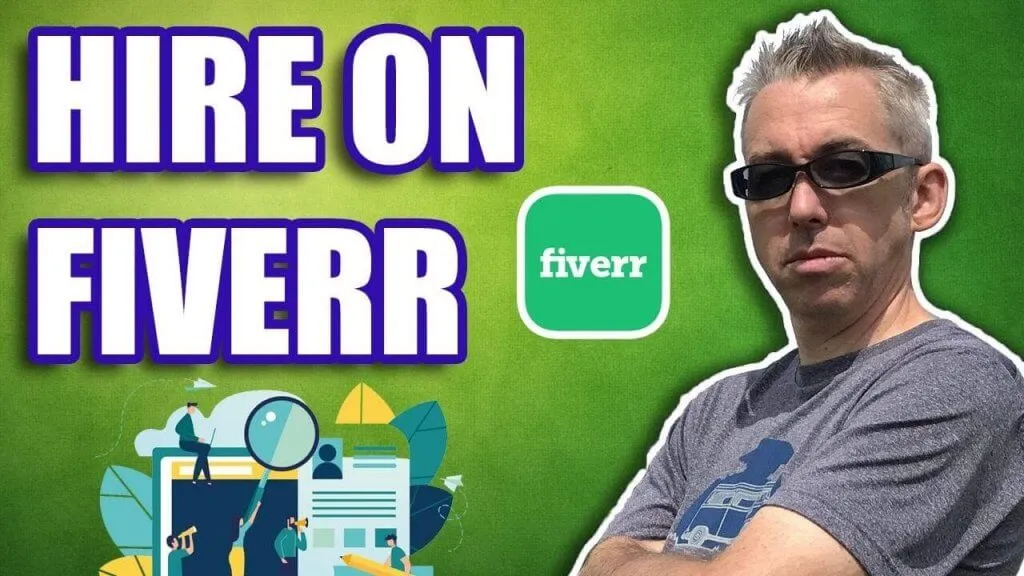Ever wondered whether the cool graphic design or catchy jingle you got off Fiverr is truly yours? If you’ve dabbled in the world of freelance work, particularly through platforms like Fiverr, you might have questions about ownership and rights. This blog post will guide you through the ins and outs of Fiverr's work-for-hire policy, ensuring that you understand exactly what you're getting when you hire a freelancer. Buckle up, and let's dive in!
2. What is Fiverr?

Fiverr is an innovative online marketplace that connects freelancers with clients from every corner of the globe. Launched in 2010, it allows service providers—referred to as "sellers"—to showcase their skills and offer various services, or "gigs," to potential buyers. Here's a quick rundown of what makes Fiverr so unique:
- Variety of Services: From graphic design to programming, writing, and even voiceovers, Fiverr offers a diverse range of services. There’s something for everyone!
- Affordability: Many gigs start at just $5, making it accessible for those on a budget.
- User Experience: The platform features a straightforward interface, allowing users to search for specific services easily or browse categories of interest.
- Rating System: Sellers are rated based on their performance, helping buyers make informed decisions based on reviews and feedback from previous clients.
In recent years, Fiverr has expanded its offerings to include more premium services and diverse freelance talent, evolving from a simple gig platform to a full-fledged ecosystem for freelance work. If you've got a project in mind or need help with a specific task, Fiverr likely has a freelancer ready to assist you.
Also Read This: How to Get More Clicks on Fiverr
The Concept of Work for Hire

When diving into the world of freelancing, especially platforms like Fiverr, it's essential to understand what "work for hire" means. Simply put, work for hire refers to a legal concept where the creator of a work (like an artist, designer, or writer) initially retains no rights to the work they produce if certain conditions are met. This means the person or business that commissions the work holds all the rights to it.
Here's a simple breakdown of the key points regarding work for hire:
- Ownership Rights: The commissioner owns the final product, while the creator often does not have the ability to reuse or adapt the work without permission.
- Contractual Agreement: For a work to be classified as work for hire, the terms must typically be clearly outlined in a contract. This ensures both parties understand the ownership and rights involved.
- Types of Work Included: Work for hire can apply to a broad range of creative outputs, such as artworks, written content, code, and even films.
Now, why is this important? Well, it affects how freelancers approach their projects. If a freelancer intends to showcase or reuse their work, they'll want to clarify this with their client right from the start!
Also Read This: What Does Level 2 Seller on Fiverr Mean?
Fiverr's Terms of Service

When it comes to platforms like Fiverr, understanding their Terms of Service (ToS) is crucial for both buyers and sellers. These terms lay out the rules and expectations for all transactions and clarify rights concerning the work created. According to Fiverr's ToS, work created on the platform is generally considered work for hire. What does that mean for you?
Here’s a breakdown of Fiverr’s stance on ownership and rights:
- Transfer of Rights: Once a seller delivers the final product, the rights are typically transferred to the buyer. This means the buyer can use, modify, or share the work as they please.
- Original Work Requirement: Sellers must provide original work, meaning they cannot use someone else's material unless they have permission or the rights to do so.
- Revisions and Feedback: Fiverr encourages communication, allowing buyers to request revisions within the agreed scope, which helps ensure satisfaction.
It's important for sellers to remember that by accepting an order on Fiverr, they're often relinquishing their rights to the created work. This is why it's wise for freelancers to think about their portfolio and how they can showcase their skills without infringing on Fiverr's ToS.
Also Read This: How to Make Easy Money on Fiverr
Ownership Rights on Fiverr Projects

When you hire a freelancer on Fiverr, one of the most important aspects to consider is the ownership rights associated with the project. Understanding these rights can save you from potential legal headaches in the future. So, let’s break it down!
Typically, when you engage a freelancer on Fiverr, the default assumption is that the work is done on a "work for hire" basis. This means you, as the buyer, would generally hold the rights to the final deliverable. However, it’s not always that cut and dry. Here’s what you need to keep in mind:
- Fiverr's Terms of Service: The platform outlines that once the payment is made, you can use the work for commercial purposes. However, this does not automatically apply to every project.
- Custom Agreements: Always check if the seller has a different policy or if you can negotiate specific rights before the work begins.
- Intellectual Property: If the project involves creative content, such as logos or written materials, ensure you are granted exclusive rights upon payment.
- Attribution: Sometimes, freelancers want credit for their work. Don’t forget to discuss whether attribution is needed.
In short, while you often gain ownership rights automatically, the specifics can vary based on the freelancer and the nature of your project. Always clarify ownership rights upfront to avoid misunderstandings down the line!
Also Read This: How Can I Work with Fiverr: A Comprehensive Guide
Implications of Work for Hire on Fiverr
Understanding the concept of "work for hire" is vital when engaging with freelancers on Fiverr. This principle essentially dictates how the ownership and rights to the work are transferred from the creator to you, the client.
Here are some implications to consider:
| Aspect | Implications |
|---|---|
| Ownership Transfer | Upon payment, you typically get ownership rights to the work. However, ensure that the freelancer agrees to this. |
| Usage Rights | You can usually use the content for commercial purposes, but check if there are any restrictions. |
| Attribution and Credit | Some freelancers may require that you credit them publicly, which could influence how you use the work. |
| Future Use | Think ahead! If you want to reuse the work later, make sure you own it outright. |
Understanding the "work for hire" dynamics helps in making informed decisions. Always communicate clearly and document everything, so both you and the freelancer are on the same page. Ultimately, this can foster a positive working relationship and set the stage for successful collaborations in the future!
Also Read This: How to Work as a Freelance Insurance Adjuster
7. Case Studies and Examples
When it comes to understanding the implications of work-for-hire on Fiverr, real-life examples often provide the clearest insights. Let’s explore a few case studies to illustrate how ownership and rights play out in practical terms.
Example 1: Graphic Design Project
Imagine a scenario where a small business hires a graphic designer on Fiverr to create a logo. Upon completion, the client assumes they own the logo outright since they paid for it. However, the designer might still hold the copyright unless explicitly stated otherwise in the agreement. In this case, it’s crucial for the client to communicate expectations about ownership prior to the project kickoff.
Example 2: Content Writing
Consider a blogger who commissions a writer on Fiverr for a series of articles. The agreement includes a clause explicitly outlining that the articles are to be considered work-for-hire. This ensures the blogger retains full rights to modify or repurpose the content without needing further consent from the writer. This is a prime example of how proper structuring can protect both parties’ rights.
Example 3: Software Development
In a more complex case, a company hires a developer to build a mobile app via Fiverr. If no written contract includes a work-for-hire stipulation, the developer retains the app's intellectual property rights, which can lead to potential disputes if the company wants to make changes or sell the app down the line. This illustrates the necessity of clear terms upfront.
These examples underscore the importance of clarity in contracts on Fiverr, as misunderstandings around ownership can lead to legal complications. When using such platforms, ensure you’re all on the same page regarding ownership and rights to avoid any potential pitfalls.
Also Read This: How to Post to Fiverr: A Step-by-Step Guide
8. How to Protect Your Rights as a Seller or Buyer
For both buyers and sellers on Fiverr, understanding and protecting your rights is crucial to ensuring a fair and smooth collaboration. Here are several strategies to help you safeguard your interests:
- Use Clear Contracts: Always draft a clear contract outlining the specifics of ownership and rights over the completed work. Specify if the project is a work-for-hire agreement or if there are certain rights retained by the creator.
- Detail Deliverables: Be explicit about what the deliverables will be. For instance, if you're hiring a designer for graphics, clarify if you want source files or just the final images. The more detailed the agreement, the less room there is for misunderstanding.
- Discuss Exclusivity: If you need exclusive rights to the work, ensure this is written into your agreement. It defines whether the seller can reuse or resell the work they create for you.
- Keep Communications Documented: Maintain thorough documentation of all communications related to the project. If any disagreements arise, having records can bolster your case.
- Use Fiverr’s Tools: Utilize Fiverr’s platform tools for contracts and payments. This avoids discrepancies and provides a paper trail beneficial to both parties.
- Consult Legal Counsel: If you’re engaging in a high-stakes project, it may be wise to seek legal advice to draft or review agreements to ensure your rights are adequately protected.
By taking these proactive steps, both buyers and sellers can navigate Fiverr with confidence, reducing the likelihood of disputes and ensuring a positive working relationship.
Also Read This: How to Become a Freelance Customer Service Representative
9. Conclusion
In the ever-evolving landscape of freelance platforms, understanding the nuances of ownership and rights is essential, especially regarding Fiverr. If you’ve ever wondered, "Is Fiverr work for hire?" the answer isn’t as straightforward as you might think.
Essentially, when you commission work on Fiverr, you may not automatically own all the rights to that work unless explicitly stated. Each seller has their own terms, and it’s critical to read through their service descriptions and communicate openly about rights and ownership before any project begins. Doing so not only clarifies expectations but also helps to avoid potential disputes down the line.
Furthermore, the concept of "work for hire" can be tricky. It generally means that the creator gives up their rights to the work upon completion, transferring ownership to the hirer, provided the agreement reflects this. However, not all Fiverr gigs operate under these terms by default.
To wrap it all up: If you're looking to retain full rights over a project, ensure to discuss this openly with your Fiverr freelancer upfront. Ask about specific licensing and ownership terms, and consider formalizing your agreement in writing, whether through Fiverr’s system or external contracts. This proactive approach will give you peace of mind and clear pathways for using the delivered work.
10. FAQs
When it comes to Fiverr and questions of ownership and rights, many freelancers and clients alike have inquiries that pop up time and again. Here are some frequently asked questions to help illuminate the topic:
- Do I own the work I purchase on Fiverr? – Not necessarily. Ownership depends on the seller's terms and whether they specify anything about "work for hire." Always check the fine print!
- What should I do if I want full rights to my Fiverr project? – Discuss your needs with the freelancer at the beginning. Ensure they agree to a work-for-hire arrangement and get it in writing.
- Can I use the work commercially? – It depends on the project and the seller's terms. Always verify what rights you have before using the work for commercial purposes.
- What if the seller doesn't deliver the work? – Fiverr has a dispute resolution process. If a seller fails to deliver, you have the right to request a refund.
These FAQs can guide you, but remember—directly communicating with your freelancer is often the best approach to ensure mutual understanding and satisfaction.



